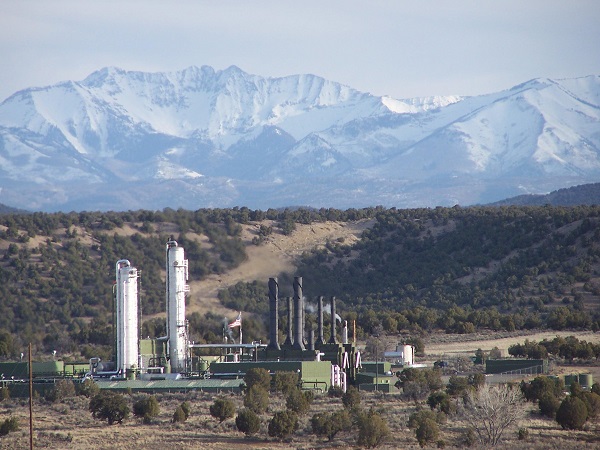Carbon Capture, Utilization and Storage – commonly referred to as CCUS – is on the rise as companies strive to reduce emissions. Many see it as an important tool in the fight against climate change, as it can potentially reduce emissions from some of the most carbon-intensive industries, such as power generation and other industrial processes that require hydrocarbon fuels.
The principle is to prevent carbon dioxide (CO2) from entering the atmosphere in the first place. So how do we do that? By capturing and storing it underground or using it directly in other industrial applications.
Kinder Morgan is a natural fit for facilitating CCUS. Our enhanced oil recovery (EOR) business involves permanently injecting CO2 into depleted oil fields. And we have been developing and operating CO2 pipelines and processing facilities for decades. Even more compelling is the fact that within 30 miles of our existing CO2 pipelines, we estimate that there are significant carbon capture opportunities from natural gas processing/treating, natural gas power and coal power.
We are also uniquely positioned to participate across the value chain, which includes capture from emissions sources, transport, and utilization (EOR) or sequestration. Let’s take a look at the various pieces of the value chain and how we fit in.
Capture: We continue to look at opportunities to leverage our CO2 operational experience to invest, construct and/or operate CO2 capture facilities as part of CCUS projects.
Emission sources: KMI is in talks with emissions sources throughout North America who are looking to capture CO2 emissions from their operations.
Transport: As the largest transporter of CO2 in North America, we can move approximately 1.5 Bcf/d through the Cortez pipeline that delivers roughly 80% of the CO2 used for Permian EOR. This makes us uniquely positioned for CCUS projects around our existing infrastructure or allows us to leverage that experience for greenfield projects throughout the U.S.
EOR/Sequestration: KMI has decades of downhole CO2 EOR experience that we utilize to assess potential sequestration locations.
Looking at the value chain, it should come as no surprise that we recently announced our first CCUS project with Red Cedar Gathering Company – a joint venture between Southern Ute Indian Tribe Growth Fund (51%) and Kinder Morgan (49%). Pending the receipt of required federal and state approvals, KMI will provide transportation on our CO2 pipelines and permanently sequester the captured CO2 at an existing Class II well in the Permian Basin. Ownership in the Red Cedar Gathering joint venture, our existing CO2 pipeline network and our downhole experience allows us to participate in this project across the entire CCUS value chain.

